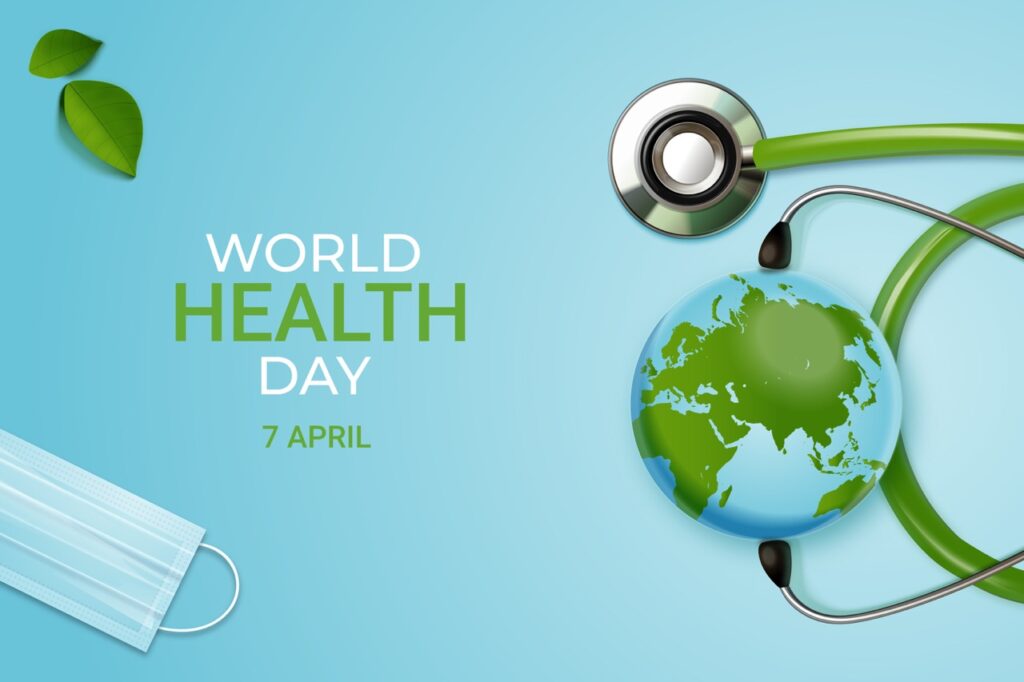The World Health Organization (WHO) has warned that the health rights of millions are increasingly at risk globally, highlighting the looming threats of diseases and disasters that could result in fatalities and disabilities.
The global health body disclosed this in its message to commemorate the 2024 World Health Day (WHD).
WHD is observed annually on 7 April as a global health awareness day, offering an opportunity to spotlight a specific health problem or issue deserving special attention worldwide.
The WHO said the theme for the 2024 WHD ‘My health, my right’, was chosen to advocate for the entitlement of individuals worldwide to access quality health services, education, and information.
This encompasses access to safe drinking water, clean air, good nutrition, quality housing, decent working conditions, environmental safety, and freedom from discrimination.
“Around the world, the right to health of millions is increasingly coming under threat,” it said.
“Diseases and disasters loom large as causes of death and disability. Conflicts are devastating lives, causing death, pain, hunger, and psychological distress.”
The WHO noted that the burning of fossil fuels is simultaneously driving the climate crisis and taking away our right to breathe clean air, with indoor and outdoor air pollution claiming a life every five seconds.
It said its Council on the Economics of Health for All has found that at least 140 countries recognize health as a human right in their constitution.
However, countries are not passing and putting into practice laws to ensure their populations are entitled to access health services.
“This underpins the fact that at least 4.5 billion people — more than half of the world’s population — were not fully covered by essential health services in 2021.”
Right to health
In a message to mark the day, WHO regional director for Africa, Dr Matshidiso Moeti said health is not only a fundamental human right but also central to peace and prosperity.
Dr Moeti said addressing health inequities requires intentional efforts and considerations of vulnerable groups must be assessed.
She said the needs of vulnerable groups ought to be purposively integrated into health programmes at all levels to accelerate progress toward UHC.
“We know that many in our region still need help with access to quality essential health services due to unfulfilled rights,” she said.
“This is further compounded by protracted and ongoing crises such as conflicts, climate change, food insecurity, disease outbreaks, and epidemics.”
The regional director noted that the number of people aged 15 and over living with HIV is still high at an estimated 24.3 million in 2021 (3.4 per cent of the total population) compared to 15.6 million in 2005.
She said this reflects the continued transmission of HIV despite reductions in the incidence of people newly infected and the benefits of significantly expanded access to antiretrovirals.
“Disparities in the coverage of key reproductive, maternal, newborn, child, and adolescent health interventions remain significant, with the rural dweller, the poor, and those in hard-to-reach areas being the most disadvantaged, she said.
“Furthermore, about eight per cent of the population in the African Region is still experiencing catastrophic health expenditures.”
Dr Moeti urge Member States to uphold the progress towards fulfilling the right to health, agreed by all nations of the world in 1948 and enshrined in the WHO constitution.
She said the right to health is a universal right of all human beings, regardless of race, color, sex, language, religion, political or other opinion, national or social origin, property, birth, or another status.


